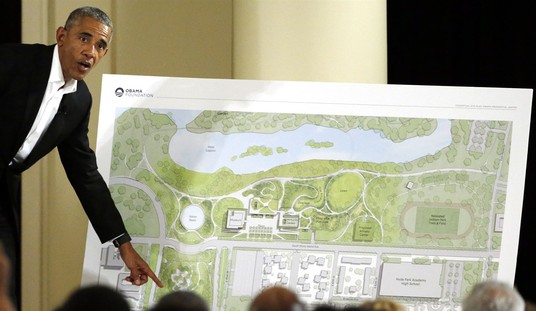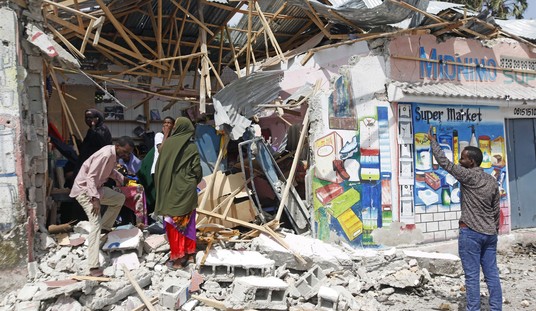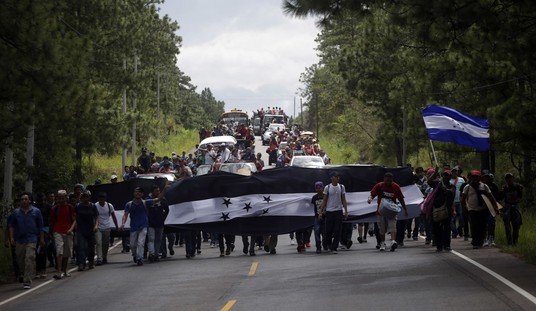Predictions of doom and apocalypse always make good press, and the combination of an election year’s hyperbole and a very real economic crisis in September and October just made predictions of doom seem all the more plausible.
So, when it was reported recently that the Department of Defense was preparing plans to suppress civil unrest following an economic collapse, it all seemed sort of plausible. Fitting, even. After all, the economic news had been running pretty much even between the idea that we were merely entering another Great Depression and that things were about to get really bad.
It certainly sounds scary. Think how much more scary it would be if it were actually true.
If we follow the links to the actual paper, “Known Unknowns: Unconventional ‘Strategic Shocks’ in Defense Strategy Development,” by Norman Freier (LTC, Ret.), though, we find out something else. First of all, there’s the paragraph that starts the paper:
The views expressed in this report are those of the author and do not necessarily reflect the official policy or position of the Department of the Army, the Department of Defense, or the U.S. government.
Right away, we see one little hint that this might have been a bit overstated — this isn’t actually a DoD plan at all. It’s what is known, technically, as a “War College white paper.”
Here’s how it works: Someone has an idea and writes it up. They get a publication and with luck they get their names known in the community; this leads to more assignments to write papers, grants, conference attendance, and so on. It’s the way you make a living and a reputation as an academic after a military career.
It’s actually a good and useful thing — and in fact, Freier’s paper is a good one, with good ideas — but the problem comes when someone with not much experience, or on deadline, or trying to make a reputation as an investigative journalist, picks one up. Like this time.
Freier’s white paper takes its title from the famous Rumsfield-ism. His point is that the Departments of Defense and Homeland Security ought to make an effort to think about events outside the usual tactical planning — the “strategic shocks” like the 9/11 attack — that require radical changes in our way of thinking and very different kinds of national defense efforts. Freier discusses how different some of our defense ideas have had to become in the last eight years, and argues that the defense community has to start thinking about the outliers, the “black swans.” And he’s right: it’s not like the old days when a war started with a declaration, a major buildup, a surprise attack on a U.S. territory, or the shooting of an Austrian prince by a Serbian nationalist.
Oh, wait. Those weren’t really expected, either.
In fact, Freier is making a point that the military establishment needs to be reminded of on a regular basis: the threats that will hurt the worst are the ones that come from unexpected quarters; it therefore is important to make sure there are as few really unexpected quarters as possible. Toward that end, and on page 38 of 44 pages, he suggests three scenarios that might make people at DoD think:
-
“Strategic State Collapse”: the collapse of a strategically important nation. (Actually, didn’t that happen once, back in the 80s?)
-
“Violent, Strategic Dislocation Inside the United States”: Some unforeseen and unexpected event that leads to social collapse, like a nationwide pandemic or a WMD attack.
-
“Politics, Economics, Social Action, and Political Violence as Hybrid War”: That is, “the prospect that hostile state and/or nonstate actors might individually or in concert combine hybrid methods effectively to resist U.S. influence in a nonmilitary manner.” (Again, this actually sounds familiar: isn’t that a lot like the USSR’s role in the Cold War?)
And that’s it. From pages 31 to 33 in a 36-page white paper (44 including footnotes).
From this, people compounded a secret Defense Department plan to deal with imminent social disorder.
I’ve been a member of the “working press” for a year now, and I have to admit that it gives me a very different picture than I used to have. I’m aware in a way I never was before of the way that deadlines and the need for copy to fill the pages can press on you. I sympathize; I really do. But I wish someone would have read the study first.










Join the conversation as a VIP Member